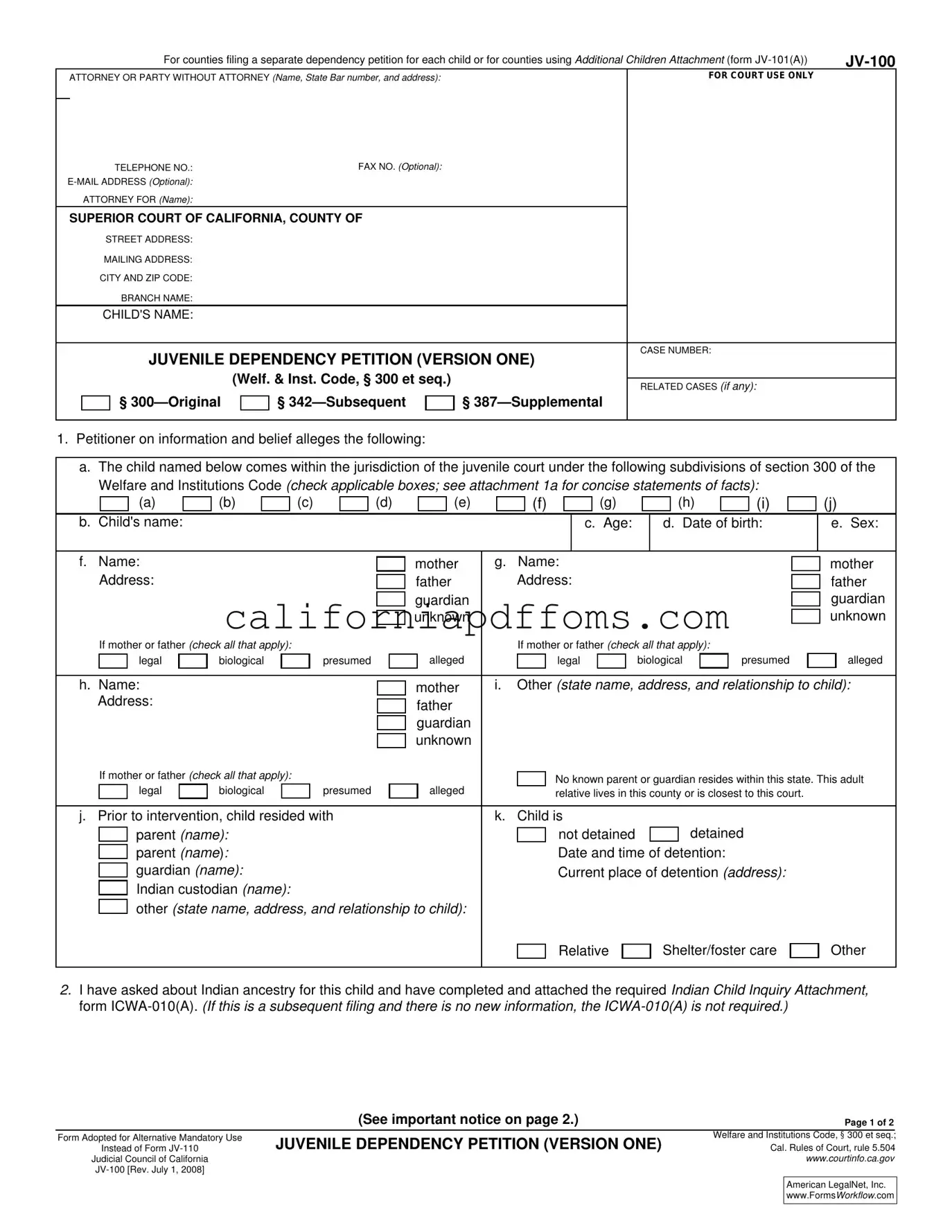Fill in Your California Jv 100 Template
The California JV-100 form serves as a crucial document in the juvenile dependency process, specifically designed for cases involving children who may need protection due to various circumstances. This form is utilized primarily by petitioners, which can include parents, guardians, or attorneys, to formally present allegations to the juvenile court regarding a child's welfare. It encompasses essential information about the child, such as their name, age, and details about their parents or guardians. The form requires the petitioner to assert the grounds for the court's jurisdiction under specific sections of the Welfare and Institutions Code, indicating the reasons why intervention is necessary. Additionally, the JV-100 form includes a section for related cases, allowing the court to understand the broader context of the child's situation. Importantly, it also addresses the need for inquiries into the child's Indian ancestry, ensuring compliance with the Indian Child Welfare Act. By completing this form, petitioners are not only initiating legal proceedings but also acknowledging the serious implications for parental rights and responsibilities, emphasizing the importance of appearing in court to respond to the petition. Overall, the JV-100 form is a foundational step in safeguarding the interests of vulnerable children within the California legal system.
Create Common PDFs
California Radiology License Verification - Employees are encouraged to recognize and report unsafe conditions promptly.
California Fnp 004 - Fictitious names must be properly documented to avoid misrepresentation in healthcare.
Does Medical Cover Braces - Each section of the form is designed to capture essential details that promote the effective delivery of services.
